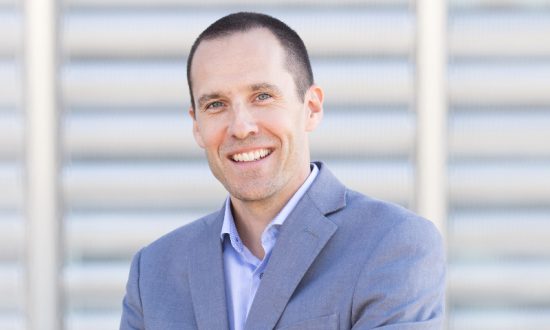Dr. Sandro Saitta is passionate about helping companies to become even more data-driven. He has worked in various industries to foster usage of data. He is currently the Founder & CEO of viadata (www.viadata.ch). Sandro gained experience in a wide range of companies such as Swisscom (consultant), SICPA Security Solutions, Expedia, Nestlé Nespresso and the Swiss Data Science Center. Sandro is a lecturer at Business School Lausanne (BSL) and HEC Lausanne. He is a member of the executive committee of CDOIQ Europe and co-founder of the Swiss Association for Analytics. Sandro holds a PhD in Computer Science from the Ecole Polytechnique Fédérale de Lausanne (EPFL).
Recently, in an exclusive interview with Digital First Magazine, Dr. Sandro shared his insights on the importance of data science in today’s business environment, his career trajectory, key roles and responsibilities as Founder & CEO at viadata, significant career milestones, pearls of wisdom and much more. The following excerpts are taken from the interview.
Do you think that data science is perceived to be more important than ever before?
Data science, and more broadly, data-driven decision-making, will become the prevailing norm. What was once confined to academia and a handful of tech giants is becoming readily available to all. In the present day, anyone has the opportunity to use data science platforms and programming languages to leverage data.
However, the integration of data science into corporate practices remains far from the norm, particularly within small and medium-sized enterprises (SMEs). This discrepancy is due to a deficiency in both data culture and data literacy among staff and executives alike. Companies are gradually recognizing that capitalizing on their data is giving them a significant advantage over the competition.
What can leaders do to promote a data driven decision-making culture in their organizations?
To begin with, leaders need to have a clear vision of the organization’s direction and the strategies to achieve those goals. Equally important is demonstrating the strong connection between the data strategy and the company’s overall strategic roadmap. It is crucial that this strategy is communicated throughout the entire organization.
Moving on, leaders should define distinct data responsibilities and allow employees the flexibility to dedicate time to these tasks. It is not sufficient to merely outline tasks; providing the necessary time and resources is essential for effective execution.
Thirdly, customized training programs should be established. Employees should gain an understanding not only of how data can be harnessed to drive decisions, but also of the significance of data collection and quality.
Lastly, embracing a data-driven mindset necessitates organizational transformation. Leaders play a pivotal role in guiding and managing this transformational journey.
Dr. Sandro, please tell us about your past work experiences, career growth journey, and your long-term vision.
Following the completion of my PhD in Data Science, I have engaged with a diverse array of companies spanning various industries as well as academia. My professional journey has encompassed sectors such as telecommunications, chemistry, fast-moving consumer goods (FMCG), and online travel agencies (OTA). I like dynamic environments, as they offer me an opportunity to glean insights from new colleagues, clients, and suppliers. My roles have been multifaceted, ranging from data scientist to team leader.
Furthermore, I like sharing my experience in the field of data science, with different audiences. I am fortunate to serve as a lecturer in several executive programs, including the CAS in Data Science & Management at HEC Lausanne and the EMBA program at Business School Lausanne.
Throughout my two-decade career, my core vision has remained steadfast: I am dedicated to empowering companies to embrace a data-driven mindset and further amplify their capabilities in this direction.

What are your main activities as Founder & CEO of viadata?
Through viadata, I embarked on a fresh entrepreneurial venture, extending my commitment to assisting enterprises in their evolution to become even more data-driven. The name “viadata” encapsulates the idea of a journey through data.
This encompassing mission entails a range of responsibilities, including providing guidance to leaders, charting out data science roadmaps, nurturing employee skills through training, and recruiting future data talents. I am positioning myself as the primary point of contact of companies for all matters pertaining to data and artificial intelligence. When the need arises, I ensure the integration of appropriate partners into the project to achieve comprehensive solutions.
With viadata and your involvement into the CDOIQ Europe event series, you interact with Chief Data Officers (CDO) and data leaders. Can you share on the importance of the role of CDO and how you see it evolve?
The position of Chief Data Officer (CDO) holds a pivotal significance for multiple reasons. Firstly, it conveys a resounding message to employees, underscoring the value of data as a corporate asset. Secondly, the C-level nature of this role highlights the integration of the data strategy into the broader corporate strategy framework. Thirdly, it designates a person responsible for the data and AI roadmap, in charge of both the defensive aspects (governance, quality, etc.) and the offensive facets (analytics, machine learning, etc.) of the data strategy.
Currently, the majority of CDOs possess a defensive background and function, aiming to organize, enhance, and safeguard data. A limited number of CDOs have a primarily offensive background in domains such as data science and AI. Nonetheless, the role is evolving, as evident by new titles like Chief Analytics Officer, Chief AI Officer, and Chief Data & Analytics Officer. Anticipating the future, companies might encompass multiple data-related roles, reflecting the intricate nature of the CDO position.
You are also a Lecturer at Business School Lausanne (BSL) and in the Certificate of Advanced Studies (CAS) in Data Science & Management at HEC Lausanne. Can you please tell us about the programs/courses taught by you and their significance in today’s digital era?
The primary aim of these programs is to empower executives with enhanced data proficiency. Our curriculum spans a broad spectrum, including areas ranging from data strategy and governance to data science and machine learning. In the courses I personally facilitate, my approach involves demystifying artificial intelligence, offering real-world application examples from my own experiences, and showing the limits of data-driven methodologies.
In the past, there was a necessity to substantiate the value of such programs. However, in the current landscape, they are more and more recognized as indispensable. I do believe that in our contemporary epoch, possessing a certain degree of data literacy is imperative for professional success. Data literacy is fast approaching the same level of significance as mathematical and English proficiencies.
What are your thoughts about ChatGPT? Do you feel that data science jobs may become obsolete or can the AI chatbot help data scientists in diligent tasks?
I perceive ChatGPT as a novel tool with the potential to enhance individuals’ productivity. While its utility within companies is still under scrutiny, there are certain considerations to be addressed. These models, although highly versatile, lack company-specific data, raise privacy challenges, and pose environmental sustainability concerns. It is possible for companies to fine-tune such tools, but this process remains complex and resource-intensive.
Recalling a few years back, there was a buzz around Automated Machine Learning (AutoML) and the broader concept of automating data science. As anticipated, data scientists are here to stay, and their roles will be there in the foreseeable future. This resilience stems from the fact that key responsibilities involve human interactions, an aspect that ChatGPT cannot replace. While ChatGPT and analogous tools can assist data scientists – for instance writing code – I think other trends, like no-code platforms, have more impact on data scientist jobs.

In your opinion, what key personality traits are common among successful data scientists?
In my experience, exceptional data scientists don’t necessarily require mastery in technical skills such as programming and statistics. Throughout my observations, I have identified three distinct personality traits that significantly set impactful data scientists apart.
First and foremost, a passion for data and AI characterizes remarkable data scientists. Their dedication comes from a genuine love for their work and the wish to always learn more.
Secondly, I have noted that curiosity furnishes data scientists with a remarkable advantage. Curiosity translates to a propensity for asking questions, thereby gathering a deeper comprehension of specific domains.
Lastly, I firmly believe that successful data scientists tend to exhibit humility. Recognizing that data science is a collaborative endeavor, humility facilitates seamless integration within a team, fostering an positive working environment.
What has been your most career-defining moment that you are proud of?
During my tenure at Expedia, I was engaged in an initiative centered around forecasting the value generated by hotels. This project had started prior to my arrival at the company. Along the way, we found the existence of duplicate entries within the hotel database. Demonstrating the value of Machine Learning (ML) for deduplication, we were able to substantiate the need for a new team member. This concept resonated with me on multiple levels. Beyond the AI-driven value generation, it underscored the prospect of team expansion and job creation, which I am very proud of.
What is the best career advice you’ve received and how have you sought to put this into practice?
One piece of advice that profoundly resonated with me is related to the art of selecting your battles. While transforming companies to become more data-driven, there is a natural inclination to tackle every opportunity that presents itself. However, a valuable advice and lesson I have learned is the importance of focus and strategic decision-making. It is wiser to prioritize and concentrate on a single project to its completion rather than dispersing efforts across numerous initiatives.
What are your passions outside of work?
Beyond my commitments to work and family, sports constitute a significant part of my recreational time. I practice tennis, mountain biking, and bouldering. Bouldering holds a special place in my heart due to its self-competitive nature and the supportive community it fosters. Apart from sports, I enjoy playing board games with friends. Additionally, I am an avid reader of science fiction books.
What advice would you offer others looking to build their careers as data scientists?
Focus on developing your soft skills. Most data scientists are very good in Machine Learning and programming with Python and R. Too few are able to summarize a project in one minute, make a persuasive presentation and explain the overall context of their project. To evolve in your career, you will have to convince people, to tell stories, to communicate. With the right soft skills, you will have more impact, get access to better positions and be more successful.






